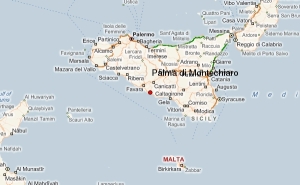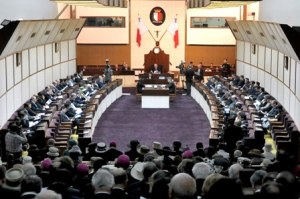A public consultation is currently under way until the 21 October relative to an Environmental Impact Assessment (EIA) which examines Wasteserve’s proposal: the development of a Waste to Energy Facility, to operate in conjunction with other management operations within the so-called Magħtab Environmental Complex.
It is a duty of Wasteserve defined in terms of the EU environmental acquis applicable within Maltese territory to examine the environmental impacts of its proposal within the framework of agreed terms of reference approved by the Environment and Resources Authority (ERA). The detailed reports together with the supporting technical information are then subject to public consultation.
The EIA in respect of the Magħtab incinerator is commissioned by Wasteserve, however it serves to inform the whole decision-taking process. Contrary to the disclaimer by the EIA’s coordinator in the first few pages, the reports forming the EIA are not “for the exclusive use of Wasteserve Malta Limited”. I fail to understand how ERA has accepted to include this disclaimer when it is clear, even from a cursory look at the Environment Impact Assessment Regulations that the EIA is an important document which informs the environmental and land use planning decision-taking process. It is in particular used to inform the public and on its basis a public hearing is organised to take feedback from all interested parties.
The EIA is certainly a public document in respect of which its coordinator has to shoulder responsibility as to its accuracy and reasonableness. Having a disclaimer as that indicated above is certainly not acceptable. ERA should pull up its socks and ensure the deletion of the said disclaimer forthwith.
A cursory look at the Magħtab incinerator EIA, including the technical studies attached reveals the names of a number of experts who have given their input in the formulation of the studies required which studies are then distilled in an appropriate assessment report.
One of these experts is a certain professor Alan Deidun who concurrently with participating in this specific EIA is also a member of the ERA Board, the environmental regulator. He sits on the ERA Board after being nominated by the environmental NGOs as established by legislation.
Professor Alan Deidun is conveniently with one foot on each side of the fence: forming part of the regulatory structure and simultaneously advising the developer, in this case Wasteserve Malta Limited, a government entity. In my book this is the type of conflict of interest which instils a deep sense of distrust of the regulatory authorities. Alan Deidun is running with the hares and hunting with the hounds.
Can we ever trust “regulators” who, whenever they feel like it, offer their services to those they “regulate”?
Interestingly, one of the documents available for public scrutiny contains a declaration by twenty-one expert contributors to the EIA, each of whom declares that s/he has no conflict of interest: the conflict however being narrowly defined in terms of an interest in the development itself. The EIA Regulations do not limit “conflict of interest” to an interest in the development but speak of “no conflict of interests”. No wonder even Professor Alan Deidun signed this declaration!
Regulation 17 of the EIA Regulations of 2017 lays down that those carrying out the EIA must be “professional, independent and impartial”. How can the regulator be “professional, independent and impartial” when he starts advising those s/he regulates?
It is about time that the environmental NGOs recall Professor Alan Deidun from his role as a member of the ERA Board representing them, as such behaviour is unacceptable in this day and age.
It may be pertinent to point out that very recently, a development permit, in respect of the development of Manoel Island, was withdrawn by the Environment and Planning Tribunal due to the fact that one of the contributors to the EIA had a conflict of interest.
It is about time that regulators understand that their acceptance to sit on decision-taking structures puts limits on their permissible professional activities. Until such time that this basic point is acted upon our authorities cannot be fully trusted. Their behaviour is incinerating trust, fairness and common sense.
published on The Malta Independent on Sunday : 11 October 2020



